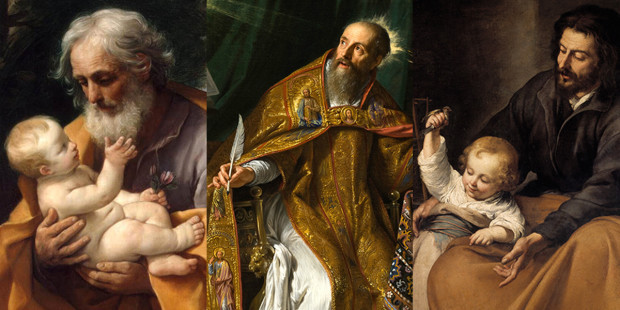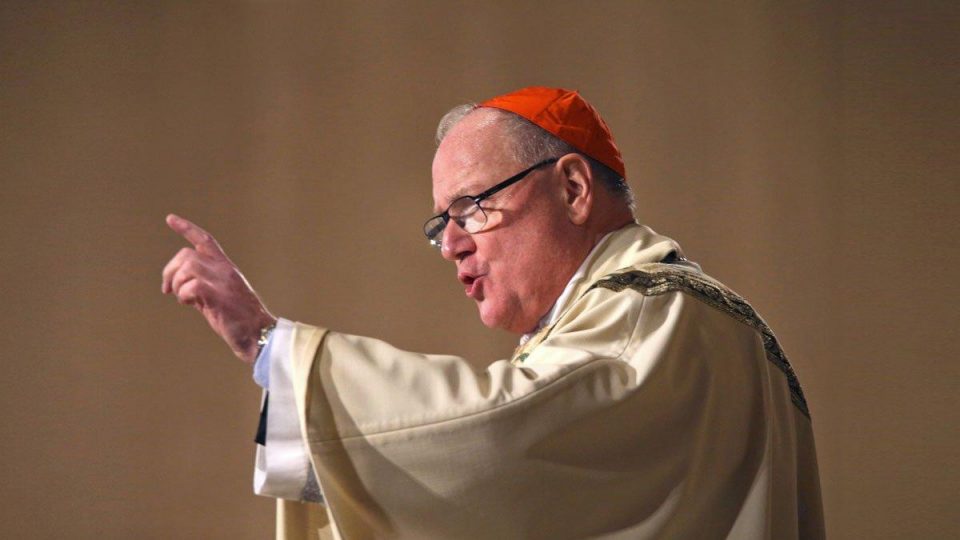10 Fathers Whose Parenthood Helped Them Become Saints

Bishop Schneider Explains the Kazakhstani Profession of Truths on Marriage
January 12, 2018
CINEMA: How the Darkest Hour Filmmakers Recreated Winston Churchill’s Secret Underground War Rooms
January 12, 2018
Whenever you dads feel unappreciated or at a loss for how to do what’s best for the kids, remember that you are not alone.
By Fr. Michael Rennier, Aleteia, Dec 30, 2017
Studies show that fathers are enormously influential in the care and formation of their children. The role of a father is demanding, so whenever you dads feel unappreciated or at a loss for how to do what’s best for the kids, remember that you are not alone. Plenty of men have found that the sacrificial nature of fatherhood is exactly what they needed to help form them into saints. These men are great examples, and they will pray for you.
1. Philip Howard

Philip was born in England in 1557 at a time of upheaval, when being religious could get a person in a lot of trouble. Luckily for him, he didn’t care about religion at all. Instead, he concentrated on climbing to ever-higher rungs on his career ladder. He spent all his time in the royal court, seldom seeing his wife and son back home.
One day at court, he heard the priest Edmund Campion speak about faith, and as a result his life began to slowly change. In particular, he spent more time with his family and began to pray more. Eventually his faith caused him to receive the death penalty—at the time in England it was illegal to be Catholic.
His best parenting tip: Spending time with the children is more valuable to them than how successful their father’s career is.
2. Augustine

Before he became a Christian, Augustine had a son with his mistress. The boy, named Adeodatus, was the pride and joy of his parents. Augustine never married, but always kept his son close to him, even though being a single parent at the time offered many challenges. Eventually, father and son were baptized together.
His best parenting tip: No matter the marital situation in which a man finds himself, he can be a good father.
3. Martin of Tours

As a young man, Martin followed in his own father’s footsteps and became a soldier in the Roman army. As a soldier, he must have quickly learned that virtues such as courage, when taken to extremes, can easily become vices. Men in particular can struggle with aggression, misplaced ideas of masculinity, and challenges to their honor. Martin shows that being manly doesn’t necessarily mean being an “alpha” male. He spent his time defending the weak and vulnerable, and wasn’t ashamed to get down off his horse to give his winter cape to a shivering homeless man. Fathers can be strong leaders but only really begin to shine when they are also compassionate.
His best parenting tip: A father’s strength can express itself in gentleness.
4. Louis
King Louis IX of France was known to be a kind and just ruler. He’s on this list, though, because he gave his son the best advice a father can ever give a son: “Permit all your limbs to be hewn off, and suffer every manner of torment, rather than fall knowingly into mortal sin.” Louis knew that nothing in the world is worth betraying your principles. He taught his son not to chase after worldly success at any cost, but how to become strong in virtue.
His best parenting tip: Be willing to provide your children with challenging advice.
5. John Paul II

Pope John Paul II was the spiritual father to billions (the title “Pope” is derived from the word “Papa”). He settled into the role well and offered wise advice on marriage, sexuality, and children. His love for all people and willingness to slow down and spend time with them shows an important aspect of fatherhood—that quality time with the children is a valuable gift only a father can give. Even in his enormous responsibilities, John Paul II never let his work take over his time with his children. In fact, as a younger man, he would often take groups of young people on hikes and skiing trips in the mountains.
His best parenting tip: Any time with the kids is quality time.
6. Joseph the Worker

Even though he appears in the Christmas Nativity story, little is actually known about Joseph, husband to Mary. Because of this, there are two traditions about him. The first is that he was an elderly man, glad to have a son any way he could. The other is that he was a young man entering the prime of his life. In this latter version he is known as “The Worker” because of his carpentry trade.
If he was young, his sacrifice to be a good father becomes even more impressive. He marries a woman who has a child not by him and then chooses to forgo children of his own in order to foster this young child named Jesus. Foster fathers are real fathers and their role in raising children is deserving of immense respect.
His best parenting tip: Stand by your family no matter what difficulties arise.
7. Simon of Cyrene
Going about his business in Jerusalem in the 1st Century, Simon probably didn’t know what he was getting into when he stopped to check out what a crowd was gathering to see on the street. Soon enough, Jesus came by carrying his cross on his way to his death. When he struggled to carry it, Simon was randomly chosen from the crowd to take the cross the rest of the way. The experience changed his life and Simon became a follower of Jesus. He later taught his son Rufus about what had happened to him and raised him to be a Christian, too. Rufus, along with his father, is now considered a saint.
His best parenting tip: Be open with your children about what your faith means to you.
8. Thomas More

Thomas More was father to four children. During the 16th century, he served the government of England as Chancellor (kind of like Secretary of State in the U.S.) during the reign of King Henry VIII. When Henry decided to divorce his wife and take up with his mistress Anne Boleyn, Thomas alone in the entire government refused to give his approval. As a father and husband, he defended the beauty of marriage and family to his very last breath, and for this crime he was executed.
His best parenting tip: Often, a father must take a principled stand to defend his family.
9. Franz Jagerstatter
Franz was born in Austria in 1907 and never knew his natural father. Perhaps as a result, as a young man he had a reputation for rebellion, eventually fathering a daughter of his own outside of marriage. Later, he settled down, married, and had three more daughters. In 1938, the German Nazis annexed his town in Austria. As a formality, the town voted to accept their new German identity—but Franz was the only person in the entire town to vote against the Nazis. Not long after, he was conscripted into the German army but refused to fight and maintained a conscientious objection. For his crime, the Germans executed him. Perhaps Franz’s fatherhood and experience of how precious life is and how it is to be protected at all costs gave him the strength of will to remain true to his principles to the very end. What better example could a father give to his daughters?
His best parenting tip: Our children are watching us to see if we mean what we say.
10. Stephen of Hungary

Of all his children, Stephen only had one son live to adulthood. This son, named Emeric, was raised with the spiritual values of his father and has also become a saint. In his position as King of Hungary, Stephen built many churches and monasteries and helped introduce his people to Christianity. On his deathbed, he prayed to the Blessed Virgin Mary, “To thee, O Queen of heaven, and to thy guardianship, I commend the holy Church, all the bishops and the clergy, the whole kingdom, its rulers and inhabitants.”
His best parenting tip: If dad takes his faith seriously, so will his children.




